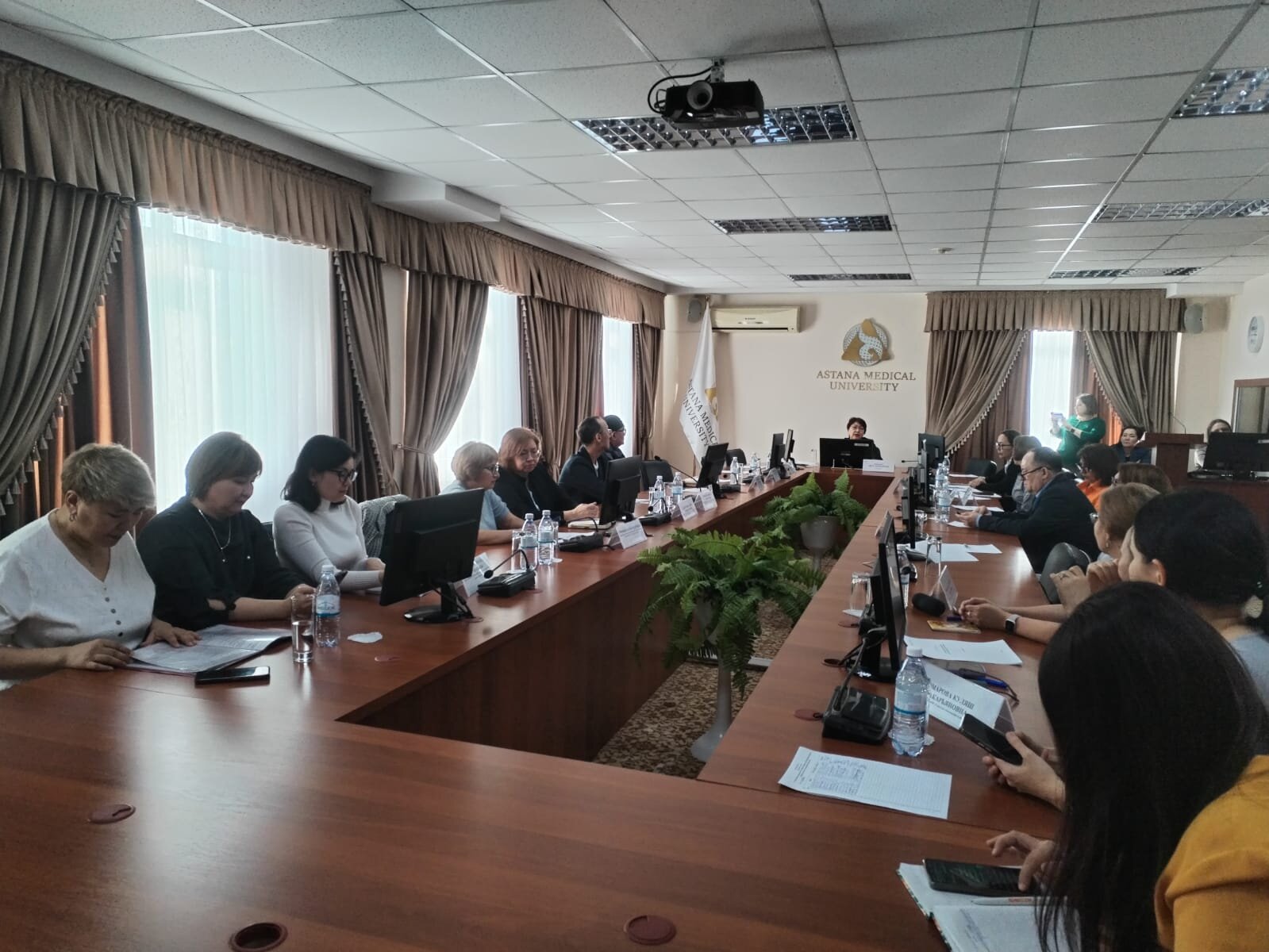Astana Medical University hosted a round table discussion dedicated to the development of training specialists in kinesitherapy and occupational therapy, as well as their future employment. The event was organized by the School of Nursing and the Department of Rehabilitation and Sports Medicine.
The round table was attended by representatives of the Ministry of Health and the Ministry of Labor and Social Protection of the Population of the Republic of Kazakhstan, chief freelance rehabilitation specialists, heads of medical institutions and rehabilitation centers, as well as faculty members, students, and graduates of specialized educational programs. Presentations were delivered by Vice-Rector of Astana Medical University Aigul Junusova, healthcare expert Gulziya Bidatova, Head of the Department of Rehabilitation and Sports Medicine Natalia Slivkina, and chief freelance specialists of the Ministry of Health of the Republic of Kazakhstan Galiya Zhanaspayeva and Meiram Shakenov.
Experts discussed key issues related to the implementation of kinesitherapy and occupational therapy in Kazakhstan, the training of specialists, and the healthcare system's demand for such professionals. Special attention was given to raising awareness among the public and the medical community about the importance and relevance of these fields.
Following the round table, participants developed a set of recommendations:
• Strengthen efforts to promote the professions of kinesitherapist and occupational therapist, increasing awareness among the public and medical institutions about their role in the rehabilitation system.
• Coordinate requests for the allocation of educational grants for training specialists in kinesitherapy and occupational therapy.
• Introduce amendments to regulatory and legal acts to clarify the status and responsibilities of these specialists, as well as review staffing standards in the medical rehabilitation system.
The results of the round table will contribute to the further development of kinesitherapy and occupational therapy in Kazakhstan. It is crucial not only to enhance specialist training but also to create conditions for their successful employment. Collaboration between educational institutions, medical organizations, and government agencies will facilitate the effective integration of these fields into the rehabilitation system, making it more accessible and high-quality for patients.


